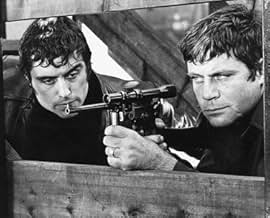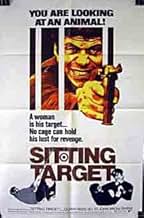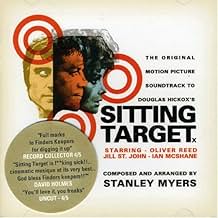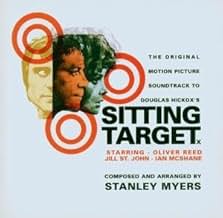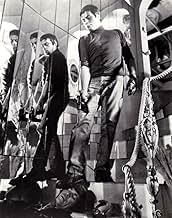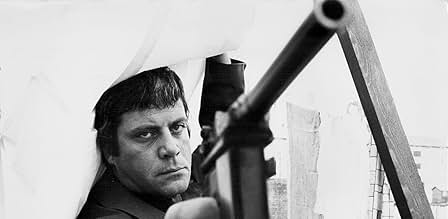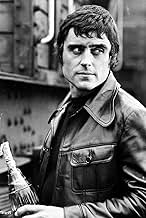The main character in "Sitting Target" is Harry Lomart, a convict serving a lengthy jail term, who learns that his attractive young wife Pat has not only cheated on him with another man but is also expecting that man's baby. Lomart, infuriated, swears revenge; together with another inmate, Birdy, he breaks out of jail with the intention of killing Pat and her lover before fleeing the country.
The film has some similarities with another British crime drama from the early seventies, "Get Carter", which came out the previous year. Both are gritty gangster dramas with a revenge theme, concentrating on the criminals themselves rather than on the police's fight against crime. In films like this there is no honour among thieves; one gangster's worst enemy is often another gangster rather than a policemen. In keeping with the permissive ethos of the era both films treat violence graphically, far more graphically than would have been permitted only a decade earlier. Both were shot on location ("Get Carter" in the North-East, "Sitting Target" in South London) and have a strong sense of place. And yet, unlike another reviewer, I cannot but find myself in agreement with those who have characterised "Sitting Target"as a poor man's "Get Carter".
Not all the acting is particularly good, especially from the former Bond girl Jill St John who seems miscast as Pat. (This was her first film after "Diamonds are Forever"; presumably the producers felt they needed a big-name American star to help with overseas sales). Like a number of foreign, especially American, actors, she makes the mistake of assuming that all British people speak with the same "posh" accent and that mastering this accent is all one needs to do in order to portray a British character convincingly, regardless of social background. (Others who have fallen into the same trap include Natalie Portman in "V for Vendetta" and even Meryl Streep in "The French Lieutenant's Woman"). Jill might have done better to drop the accent altogether; it is far more conceivable that a South London villain might have married an American girl than that he might have married a Roedean-educated débutante, which is what she sounds like here.
Oliver Reed is better; although his Lomart may lack the depth of some of his other performances from this period, such as his Grandier in Ken Russell's "The Devils", he does at least make the character convincingly thuggish, a man whose every move is driven by anger and resentment. Unlike Michael Caine's Jack Carter, who hides his violent nature beneath a veneer of stylish sophistication, with Lomart what you see is what you get. There is nothing stylish or sophisticated about him.
The film moves along at a swift pace, although it does perhaps get over-complicated in the second half, as it becomes progressively more violent and moves towards an explosive finale. It never, however, achieves the depth or significance of "Get Carter", a sort of anti-"Godfather" which demythologises the criminal lifestyle. "Sitting Target", by contrast is a brutal and nasty crime thriller, if occasionally an effective one, exploiting the violence it purports to condemn. 5/10



